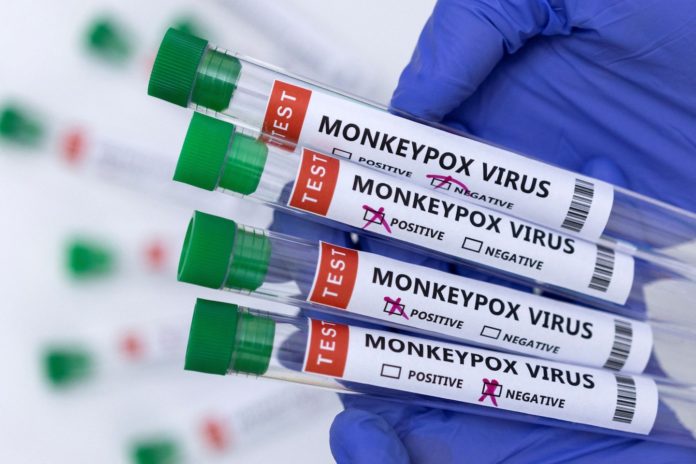
Authorities say the risk to the public is low because monkeypox is difficult to transmit and easier to contain than highly transmissible viruses such as the coronavirus. But to quell the outbreak quickly, the public health agency wants doctors to be on the lookout for rashes associated with monkeypox and for people with unusual lesions to seek medical treatment.
Officials also urged Americans against stigmatizing gay men as carriers of the disease or assuming they are the only ones susceptible to the virus. The presumed case in Virginia involves a woman who recently traveled to an African country, officials said.
Monkeypox spreads through exposure to a person with active rashes or lesions, including skin-to-skin contact, contaminated clothing or bedding or by respiratory droplets during prolonged face-to-face contact when lesions are in the mouth or throat. Experts say the early concentration of cases in gay and bisexual men appears to be a coincidental result of the first patients infecting others in their social networks.
“Infectious diseases do not care about state or international borders. They are not contained within social networks, and the risk of exposure is not limited to any one particular group,” CDC Director Rochelle Walensky told reporters on Thursday. “Our priority is to help everyone make informed decisions to protect their health and the health of their community, and that starts with building awareness guided by science, not by stigma.”
Cases suspected to be monkeypox have been identified in Massachusetts, Florida, Utah, New York, Virginia, Washington state and California. Some are awaiting confirmation.
“We need to presume that there is some community spread, but there is active contact tracing that is happening right now to understand whether and how these cases might have been in contact with each other or with others in other countries,” Walensky said.
Federal officials say they are working with gay social networking apps and LGBTQ organizations to spread the word about monkeypox ahead of Pride Month in June. They say there is no reason to avoid festivities, but people should avoid contact with those with rashes and seek medical care if they develop unusual rashes.
More than 265 recent monkeypox cases have been identified globally, mostly in Europe, according to tracking by a team of academics working with the data initiative Global.health. Monkeypox is generally confined to western and central Africa, and cases are periodically detected in travelers from the region, including two cases in the United States last year.
The United States first saw monkeypox in a 2003 outbreak linked to African rodents that left dozens of people infected.
Monkeypox causes an illness that lasts two to four weeks and starts with flu-like fever or aches, followed by a rash characterized by pus-filled bumps. Recent cases have involved rashes near the genitals.
Monkeypox is rarely deadly and because of its similarities to smallpox, it can be treated with antivirals and vaccines stockpiled in the event of a smallpox outbreak. Vaccines can be administered shortly after exposure to prevent serious illness.
Raj Panjabi, senior director for global health security and biodefense at the White House National Security Council, said officials have provided vaccines to health-care workers exposed to the first known patients in Massachusetts.








